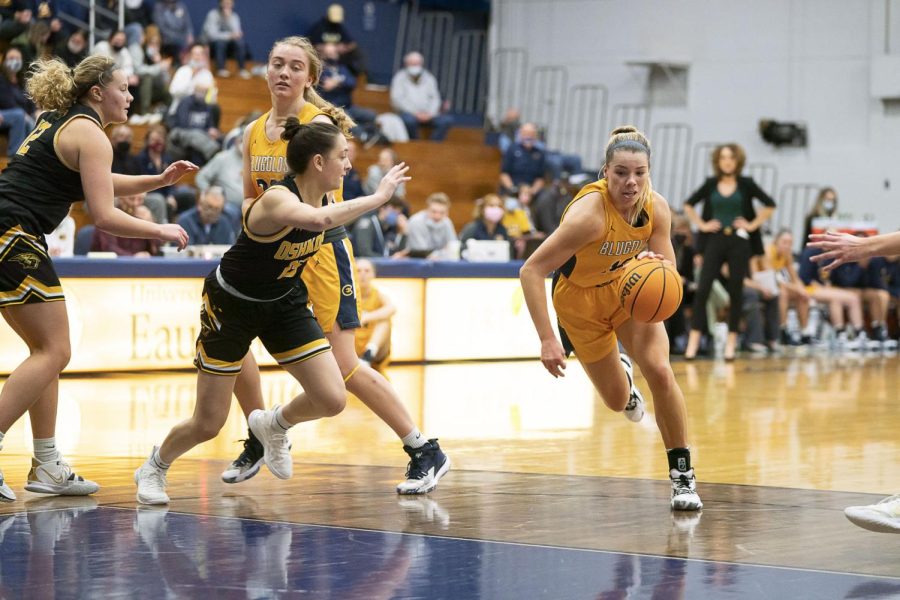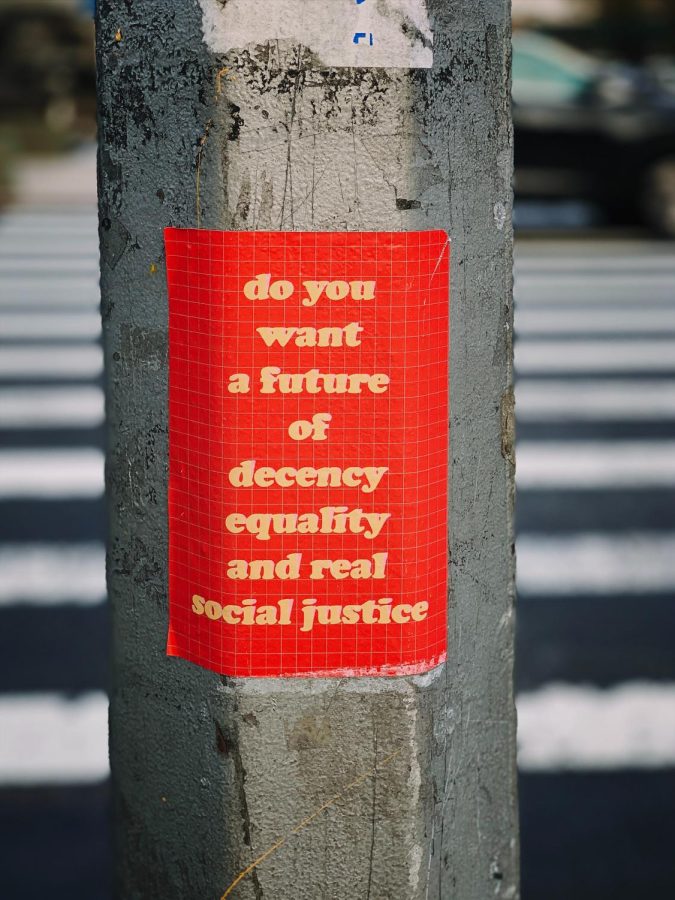Two UW-Eau Claire students are running for city council seats in the April 2 election. Spectator Managing Editor Taylor Kuether interviewed each candidate on their views and goals for the position.
Michael Turner, 33, has lived in Eau Claire his whole life and enrolled at UW-Eau Claire in 1997. Now a nontraditional student, he is finishing up his last six credits this semester while working full-time for the Eau Claire Area School District as a delivery driver. He will graduate in May with a degree in economics.
Taylor Kuether: What first interested you about local politics?
Michael Turner: I’m a union leader, I’m the elected president of Local AFSCME 560 Eau Claire School District Buildings and Grounds Workers. I’m also from Eau Claire originally, born and raised here, as were my parents. I have three children and it is my fondest desire that they choose to raise their kids here, too. I love this city and want to leave it a better place.
TK: Are there any disadvantages to running for office as a young person?
MT: If you’re younger you don’t have the same sorts of connections to the community and to individuals who are the power players and people who have established themselves here. That comes with time and age.
TK: What do you want to see changed through our city council?
MT: I’ve noticed it’s been getting harder and harder for working class families to make ends meet. I don’t think that’s specific to Eau Claire, but I don’t think the city council has made that a priority so far.
TK: Aside from your union work, do you have any other political history?
MT: In 2006 I ran for 68th state assembly. I ran against Republican incumbent Terry Moulton. I got 49 percent of the vote, I lost by 500 votes. Then in 2010, I ran for county sheriff. I believe that all elections should be contested. People should have
a choice.
TK: If elected, what do you hope to bring to the city council?
MT: As a local union leader, dealing with management and local labor disputes has given me the ability to forge consensus and find common ground when it comes to workplace issues and workplace disputes. Working in administration at the school district has given me the same sort of collaborative view on problem-solving.
TK: What have you been working on to prepare for the election?
MT: I’ve really been kicking it up into high gear recently. All weekend I was campaigning. It’s only going to get more intense as we get closer. The election is April 2, and I have an absolutely obnoxious amount of things left to do before then. I’ll be knocking on doors, making fundraising phone calls, and just talking to people in the community.
TK: What would you like to see change in Eau Claire?
MT: Our local city council needs to start making some steps toward addressing climate change locally. We can’t wait for global or national change because it’s just not happening. We need to build that movement from the ground up. I’m also interested in social justice issues. It’s flu season and I’m very concerned for Chippewa Valley workers who have to choose between going to work sick or paying their utility bill. I’d be interested in sponsoring an earned sick leave ordinance. I think it benefits the community in terms of public health especially.
TK: What political party do you identify with?
MT: I am a registered Democrat, but city council is a non-partisan position and I intend to work with everyone on the council.
TK: Do you see yourself in politics in the future?
MT: Right now I’m just focused on Eau Claire. Maybe at one time I wanted to run for something higher, but I’m not sure I want to end up in Washington, D.C. I’d like to try to leave my community, where I was born and raised, in a better place.
Luke Hoppe, 22, from Madison, currently works full-time at Erbert and Gerbert’s on Water Street while campaigning for a city council position. He was a UW-Eau Claire student through last year and plans to return to campus in fall to finish up his double major in political science and creative writing.
Taylor Kuether: What first interested you about politics, specifically local politics?
Luke Hoppe: I’ve wanted to work on political campaigns my whole life. I want to write the speeches. My grandfather told me when I was really young that I’d make a good politician. He said I had the charisma. With local politics, I like that you can directly impact the community you live in. I’m interested in self-sustainability, meaning Eau Claire and the surrounding communities would come together to support themselves.
TK: What advantages or disadvantages do you think your young age gives you?
LH: I think there can be a major advantage with the student population because candidates generally don’t go for the student vote. The disadvantage would be the age and inexperience. People are going to look at me and think, ‘What could you possibly do at your age?’
TK: Do you have any prior political experience?
LH: I did canvassing in the 2008 election. It wasn’t affiliated with a specific political party, I just wanted to get the word out to vote. The grassroots movement was a huge part of that election.
TK: What made you decide to run in this election?
LH: I had been planning on running for city council for the past couple years. The number of open seats available this time made me want to run. And with it being an at-large election, where I don’t have a specific candidate to run against, it allows me to focus on my campaign and what I want to do.
TK: What sort of efforts have you been making as we get closer to the April election?
LH: I’ve been talking with graphic design majors to make flyers to send in the mail and hand out while canvassing. I’ve also been attending a lot of meetings. It’s taken a lot of time and effort; it’s been a good thing to not be in school during this time. I’ve been going to city hall meetings and making sure I really know the issues in terms of what people want to do and don’t want to do. I’m making sure I’m keeping up to date on what needs to be done in the city.
TK: What do you hope to do if elected?
LH: My main thing, with the confluence project being a very heavy topic in 2013, I want to work closely with that. I want to make sure we can limit the destruction of the historical areas. I like the retro feel of our downtown area and I want to make sure that it stays.
TK: How has your political science background helped you?
LH: I took a state and local politics class and that just helped me understand the way the hierarchy and organizational structure of our local government works.
TK: How have your friends and peers responded to you running for a spot on city council?
LH: My friends have been really supportive. When I found out I was going to be on the ballot, they shared in that euphoria.
TK: Do you hope to have a future in politics?
LH: It’s not necessarily that I plan to hold public office for the rest of my career, I would like to work on campaigns if the actual candidacy doesn’t pan out. Even if I don’t win this election, I can be on committees in the city to still affect policy. That’s something that I’ll look into to gain more experience if this doesn’t pan out.
TK: Which political party do you identify with?
LH: I try to not associate myself with the two major political parties. I consider myself progressive. My ideas look toward the future rather than the here and now with a quick fix. I want to make sure my policies benefit people 15, 20 years down the road, not just here and now.





